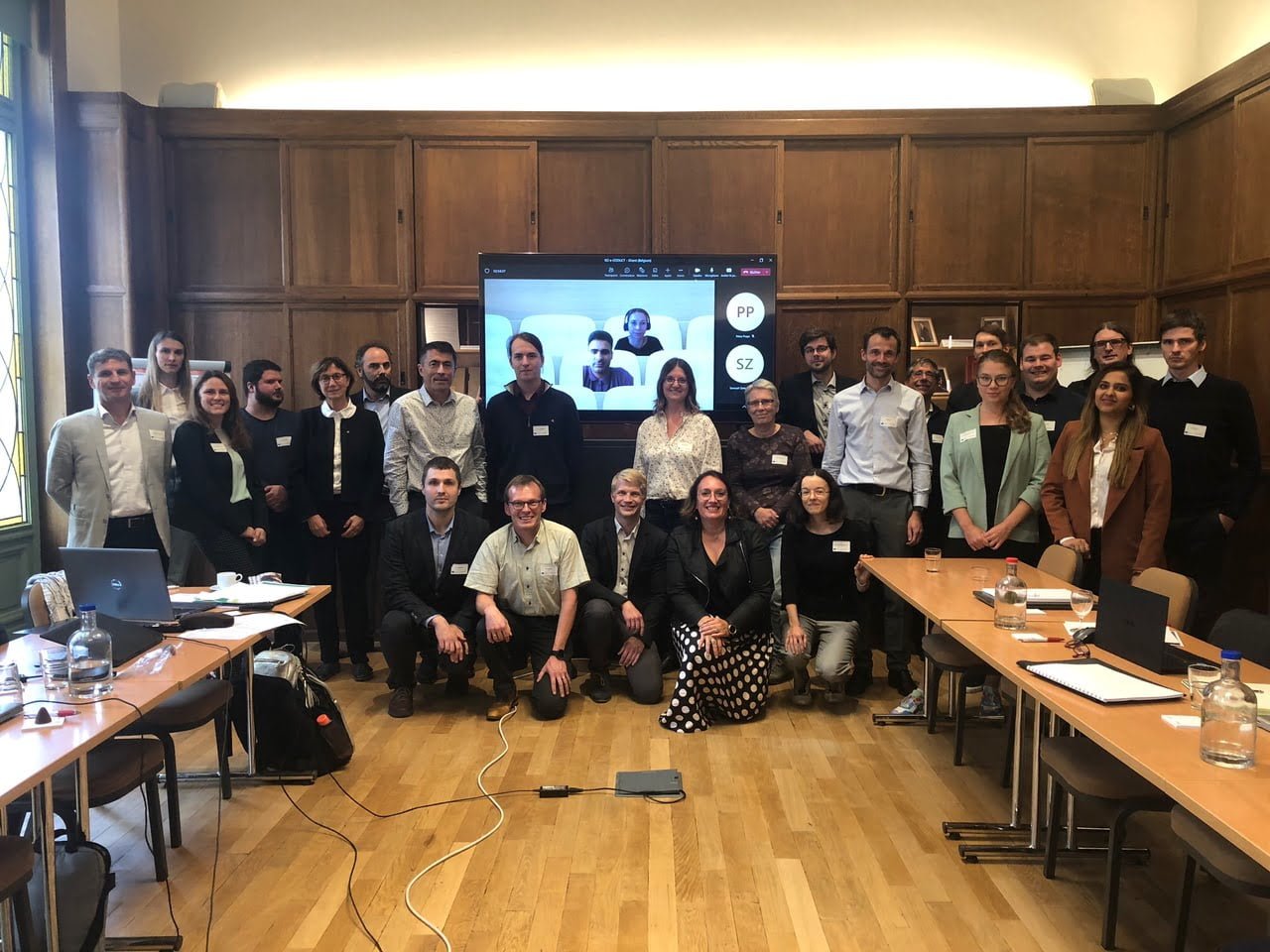
e-CODUCT project partners at the kick-off meeting, Belgium 20-21/09/2022
Nowadays, large amounts of CO₂ are released into the atmosphere by heating and industry. While about 2 Gt/year are sequestered naturally, technical sequestration, i.e., CO₂ capture and storage in underground reservoirs, is limited. Furthermore, only small amounts of CO₂ are valorised by industry, and there is neither a complete value chain nor technologies to ensure circularity, reduce GHG emissions and valorise significant amounts of CO₂. Today, refineries and the petrochemical industry are responsible for 1.24 pty of CO₂ emissions (taxed at €62/tonne). At the same time, this sector handles more than 3.6 million tonnes of H₂S per year. The latter, in combination with CO₂, is called acid gas and is obtained not only in refining but also in exploration and production (as a component of natural gas reservoirs), biogas treatment (as a natural component of the gas mixture from a digester), etc. The existing approach to acid gas treatment relies on the “Claus process” to recover sulphur from gas streams rich in H₂S and requires the additional use of fuel gas for lean H₂S sources (< 55%), while thermocatalytic or electrocatalytic CO₂ reduction, as well as sequestration, require a high purity of CO₂, which demands proper separation from the acid gas.
Existing technologies have no solution to the challenge of CO₂ conversion, which lies in the composition of streams containing other acid gases (e.g. sulphur), and the economic and environmental inefficiency of reactors. The goal is to develop a breakthrough technology that enables the simultaneous reduction of CO₂ and H₂S for the production of marketable green end products in the form of fuels and useful chemicals (CO, S and CH₃OH).
Over the next three years the project will work towards achieving the following ambitious objectives: